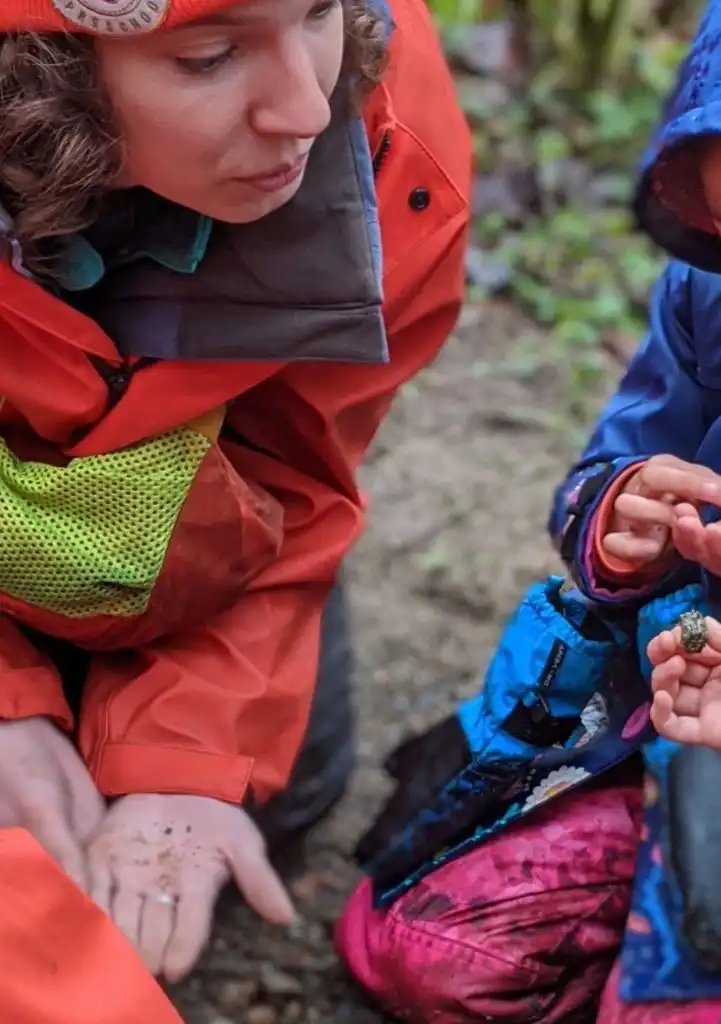We offer half day, licensed, 100% outdoor preschool programs for 3-5 year olds Monday-Friday from 8:30 AM- 1:30 PM. Families can choose between 2, 3, 4, and 5 day options (see Tuition & Enrollment for more details). Our student to teacher ratio is 4:1 to maximize safety and facilitate opportunities for meaningful relationship building. Our outdoor classroom is located on East of Eden Farm. Click here to learn more about this partnership and our location!
A typical day at Lichen Early Learning…
Our day starts with receiving a warm welcome from teachers, and settling into the space with some time to explore the classroom. Next, we gather as a group to greet each other, learn about what to expect that day, and eat some yummy snacks from home.
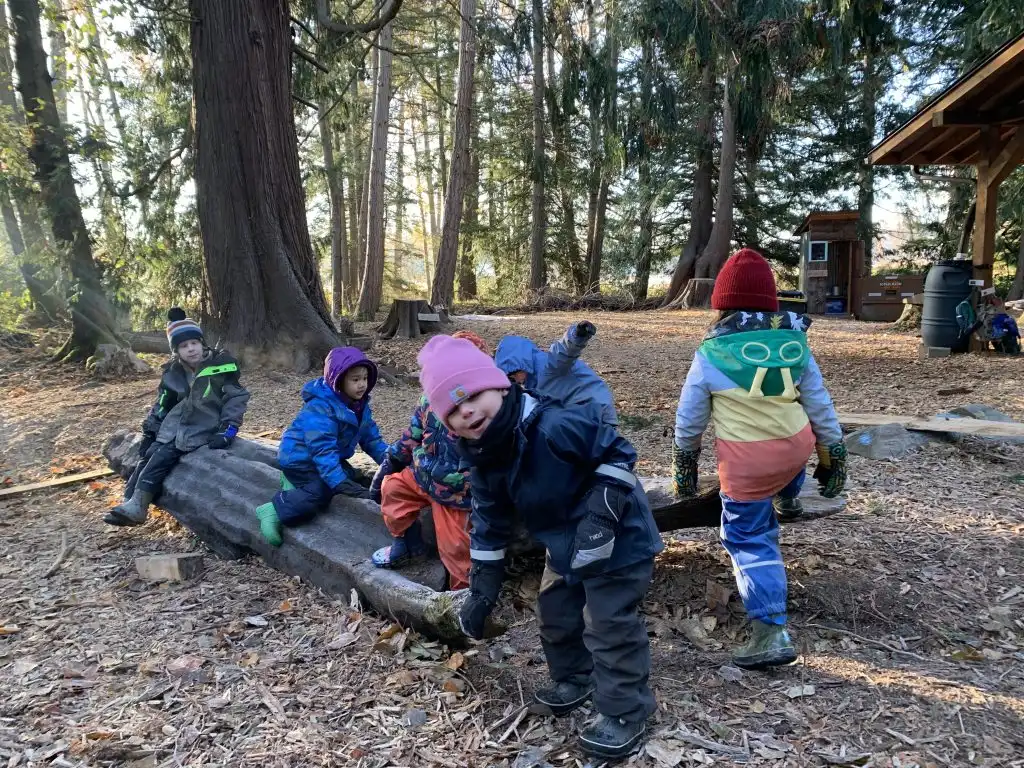
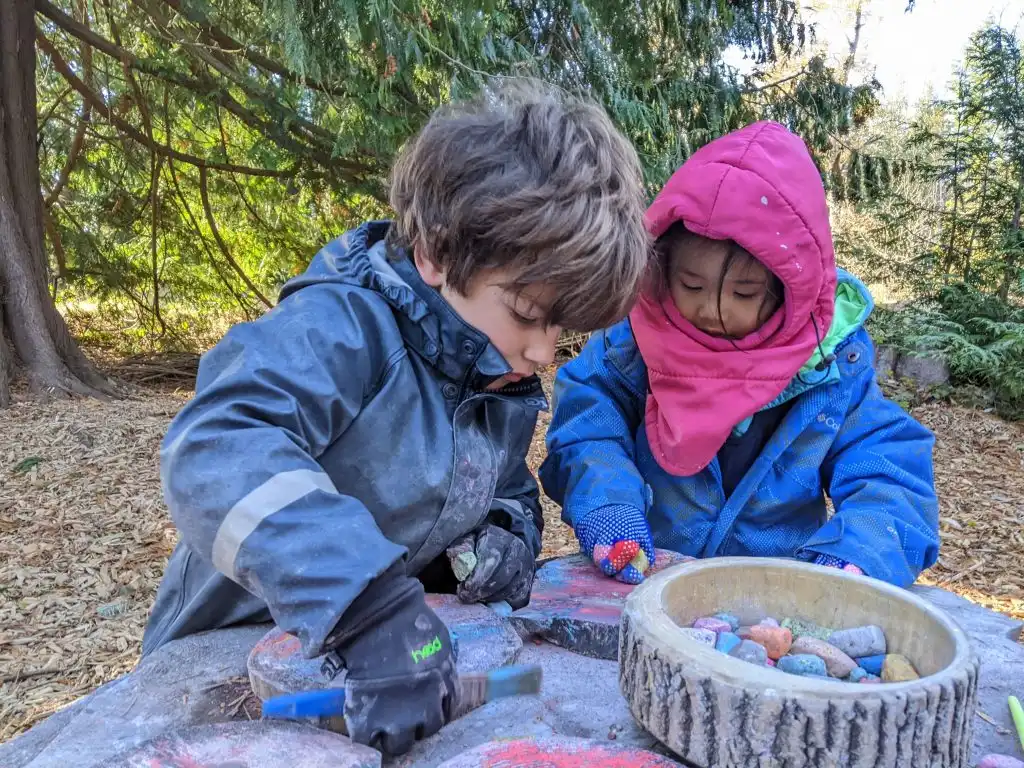
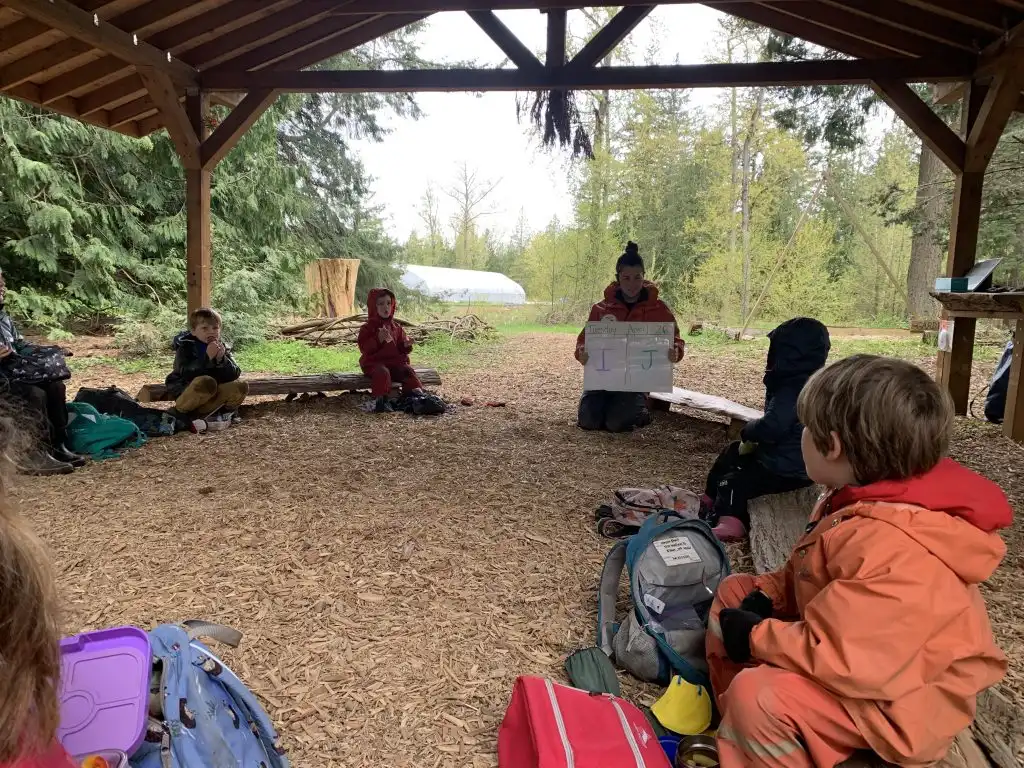
After packing up our things, we head out for a hike. There have many great explore spots on the farm, and each has unique things to offer! When we return from hiking, it’s time for lunch, which typically includes a story and time to chat with classmates.
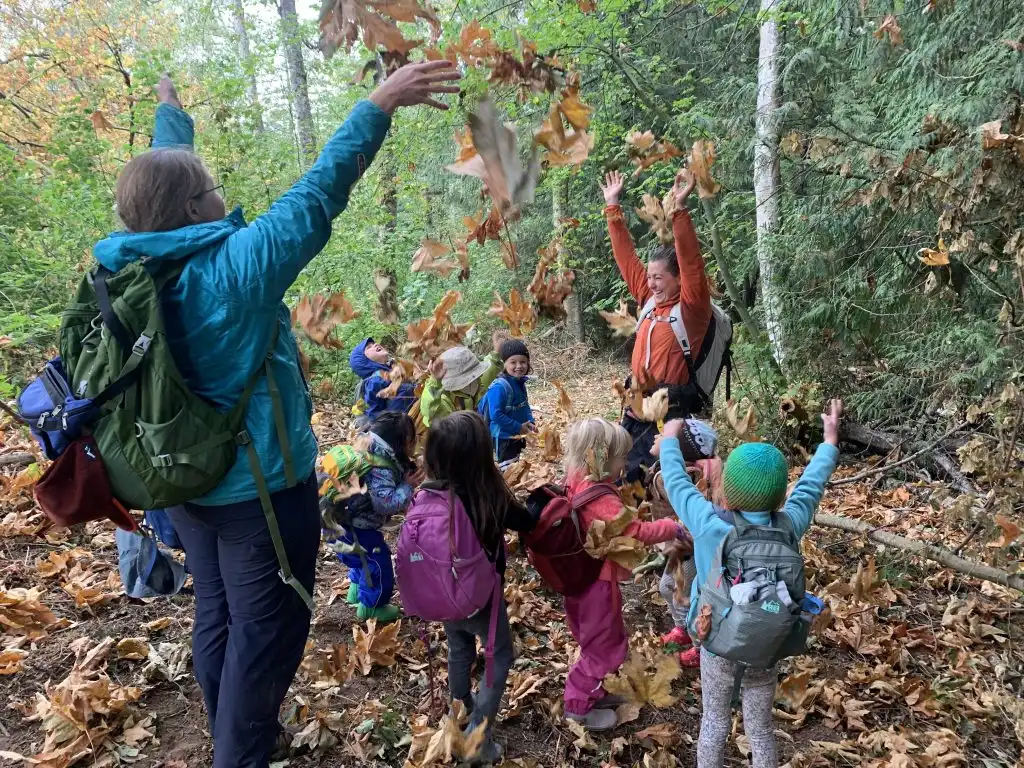
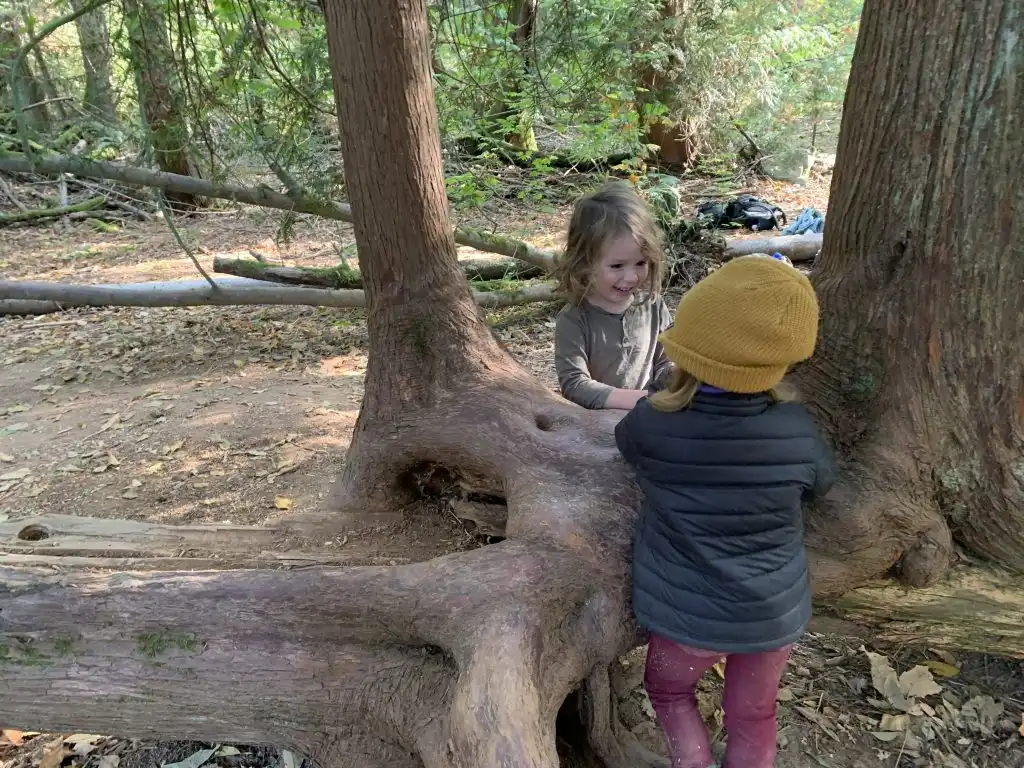
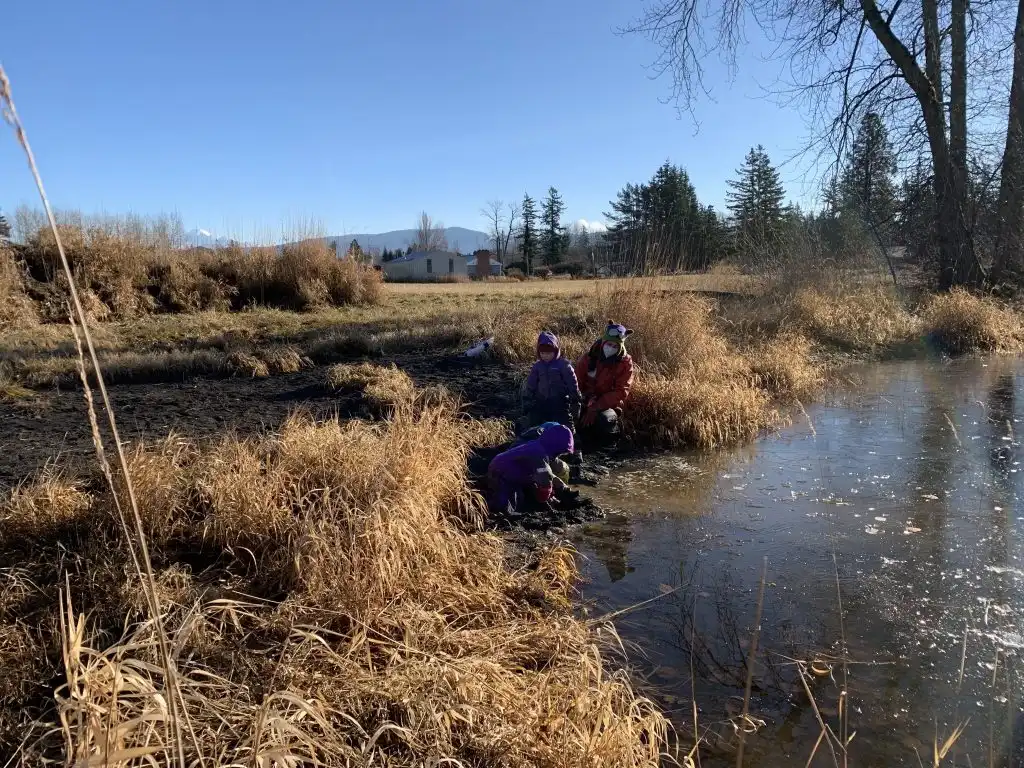
Then, it’s time for our favorite part of the day: work time! Teachers will typically put out an intentionally chosen activity based on the students’ emerging interests that they may choose to participate in. This is really a time for students to explore the space, create projects, and work with their peers. Lastly, we clean up as a group and reflect on our day during our goodbye circle with a song before heading home!
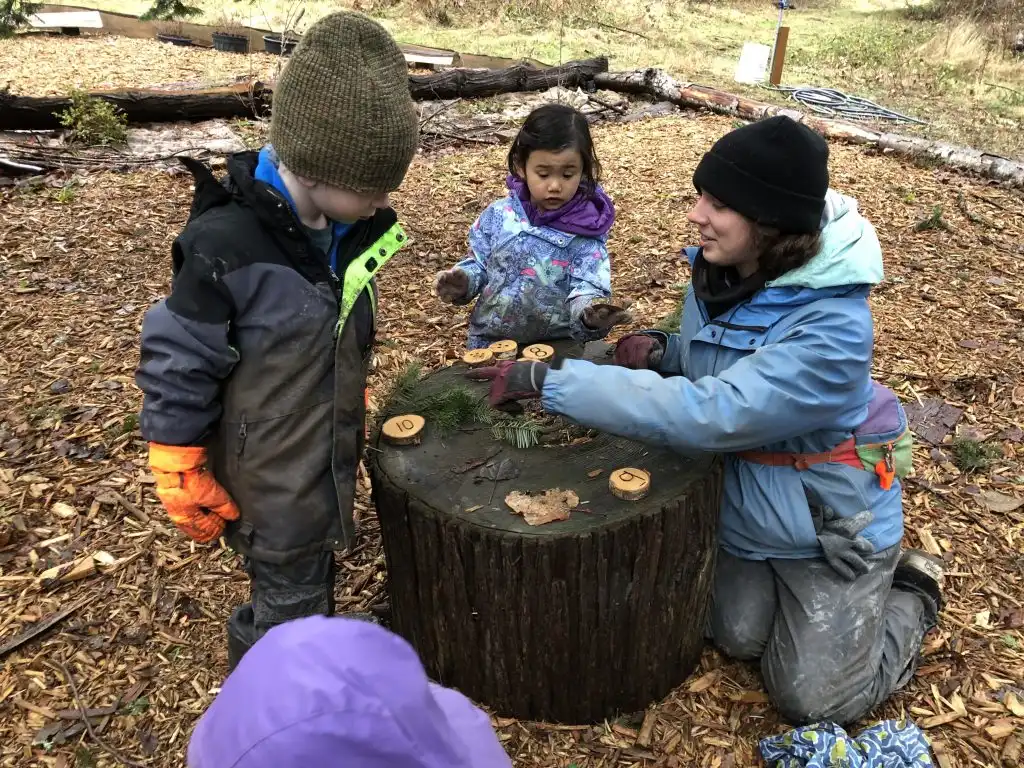
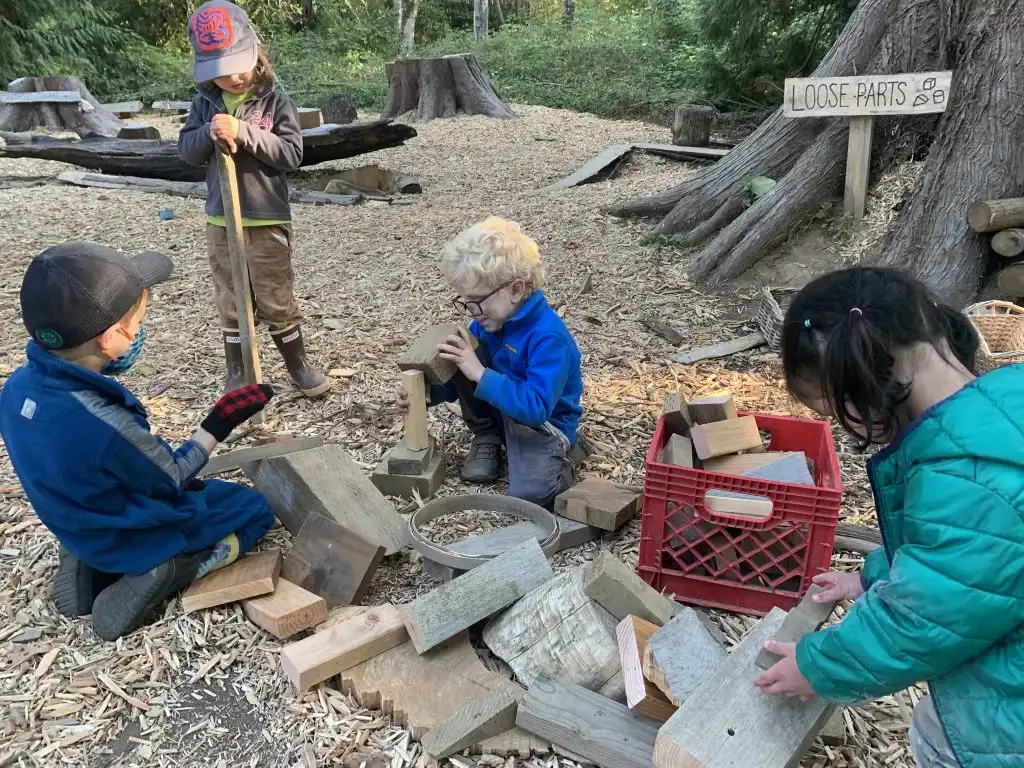
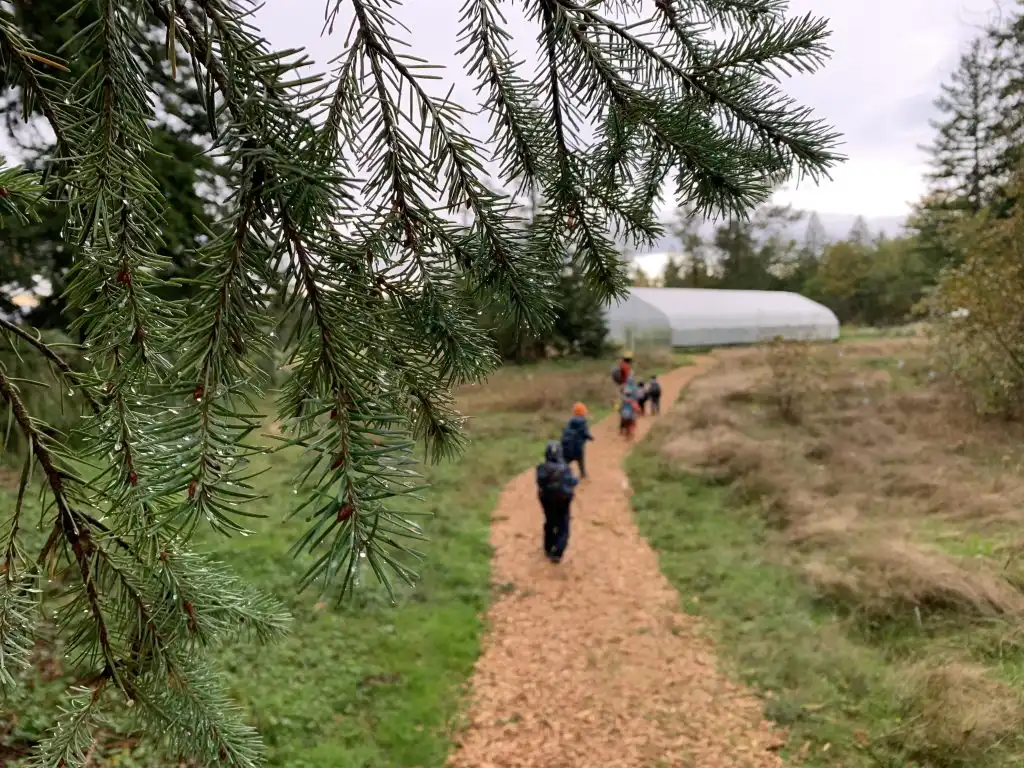
Our Curriculum Approach
From birth to age five, children’s brains develop more quickly than any other time in their lives, with 90% of brain development occurring before they start kindergarten. Their experiences during this time greatly influences the rest of their lives. At Lichen Early Learning, we strive to give children a positive and supportive, first school experience. Our goal is to cultivate a love of learning and give them the opportunity to connect with themselves, others, and the world around them.
We believe that our curriculum approach needs to be flexible and ever-evolving in order to be truly responsive to the needs of our students and families. As a result, we do not strictly follow any singular prescribed curricular model, but rather have core values in our educational philosophy that provide a framework and drive our work. They include: child-centered & emergent curriculum practices, holistic & community-based teaching, culturally relevant teaching practices with an anti-racist & anti-bias framework, embracing nature-based learning opportunities, and viewing teachers as learners. Continue reading below to learn more about each of these core values.
Child-centered and Emergent Curriculum Practices
We believe children learn best when their interests are actively driving the learning process. We know that some of their most meaningful learning experiences come from child-directed play, so we provide ample unstructured time to self direct activities they are naturally drawn to. Whether students are digging for worms, making mud pies, climbing trees, building forts, playing imaginative games with peers, looking at books, drawing, etc., they are learning and growing in a way that meets their needs and is meaningful for them.
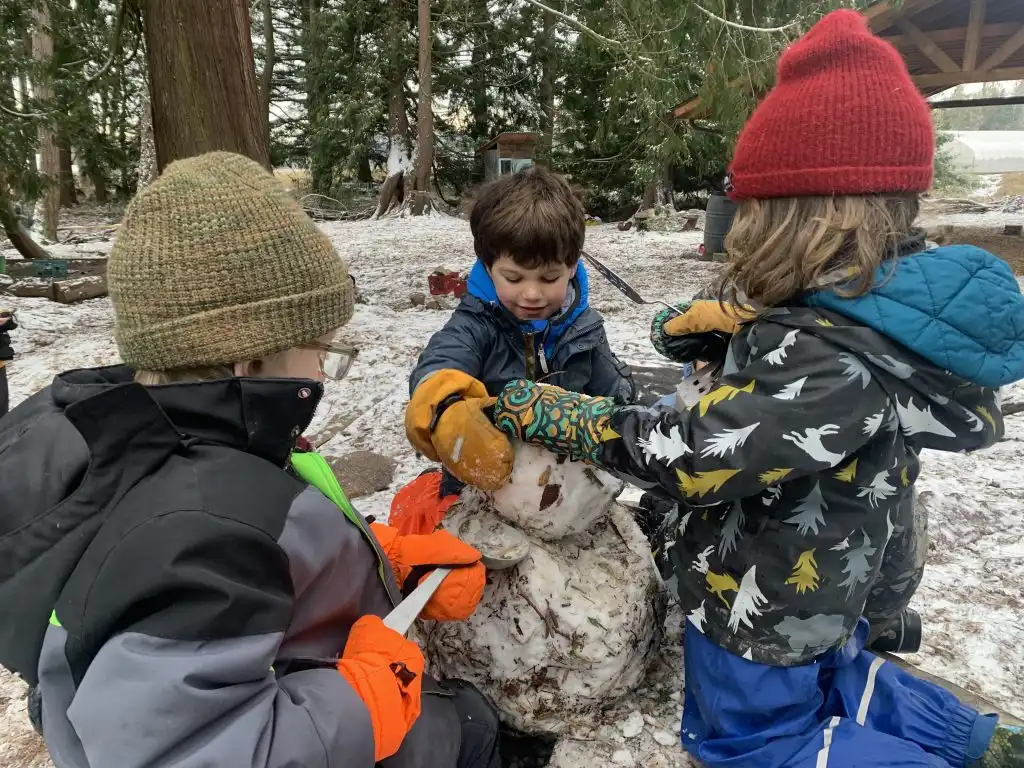
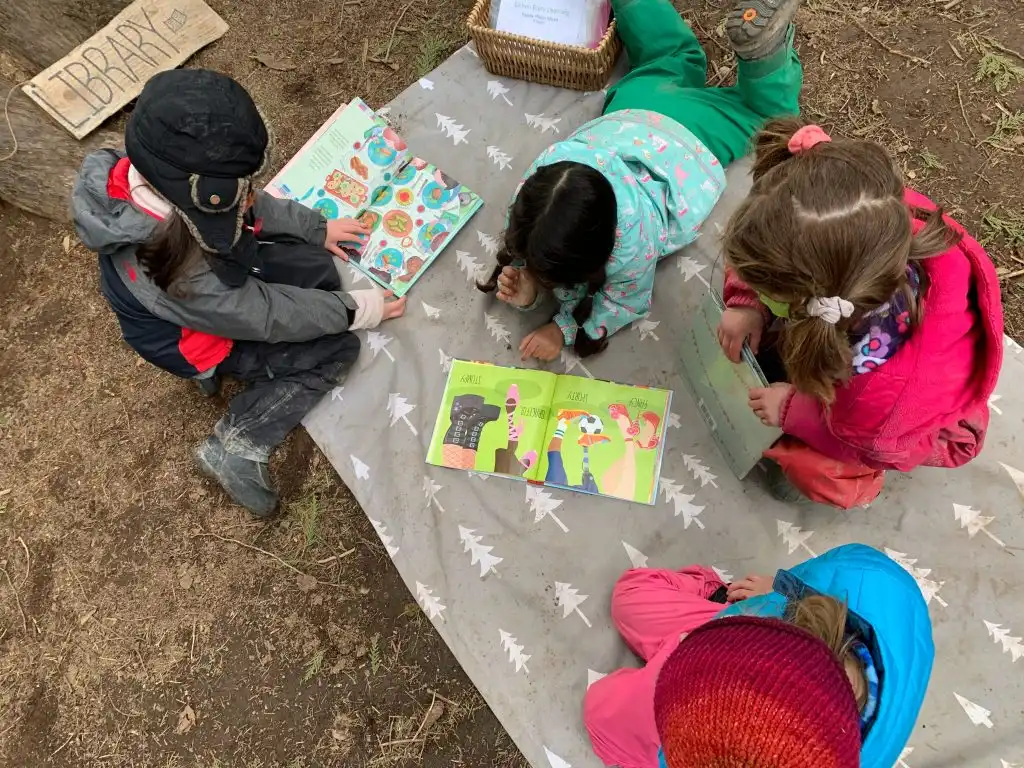
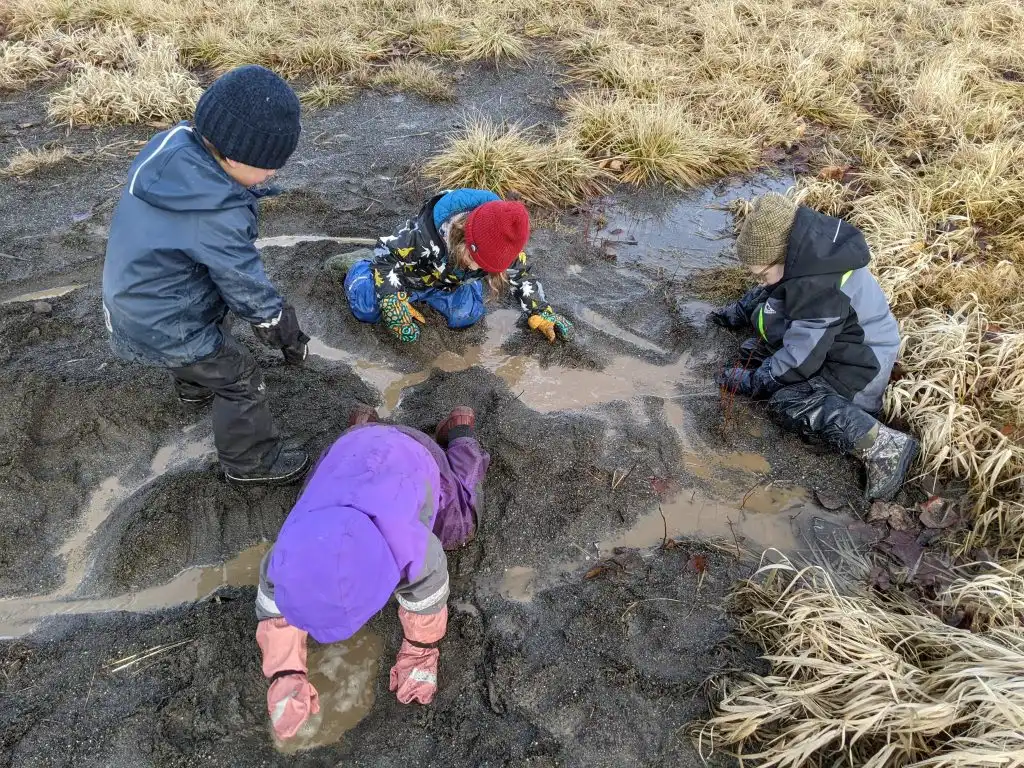
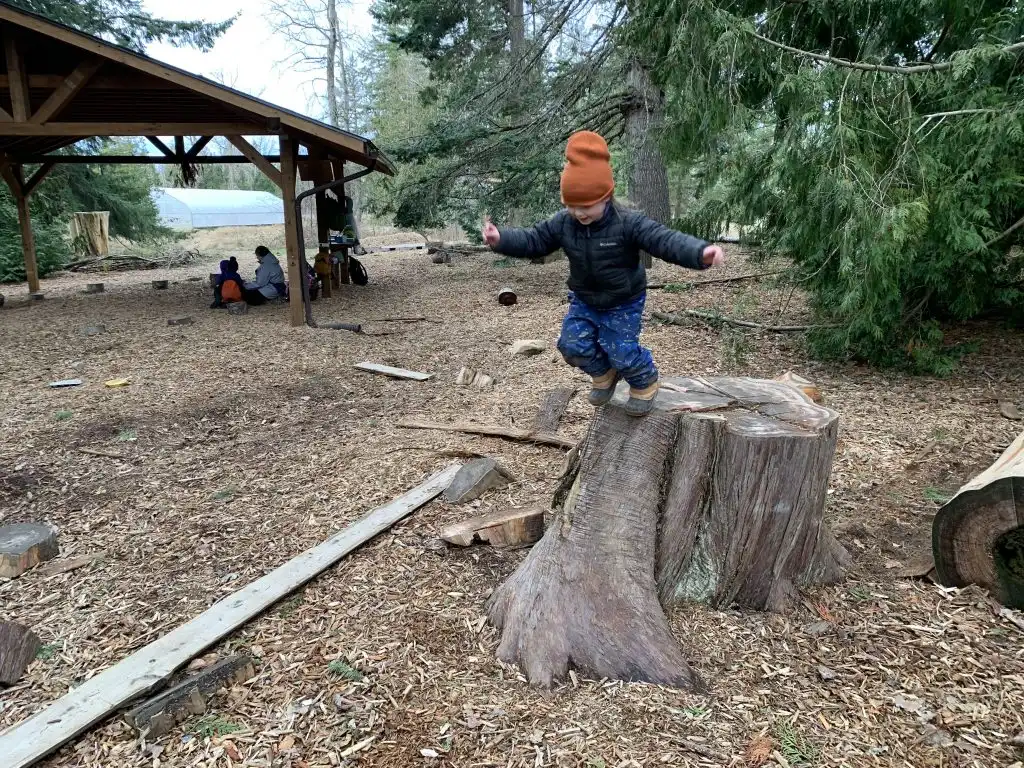
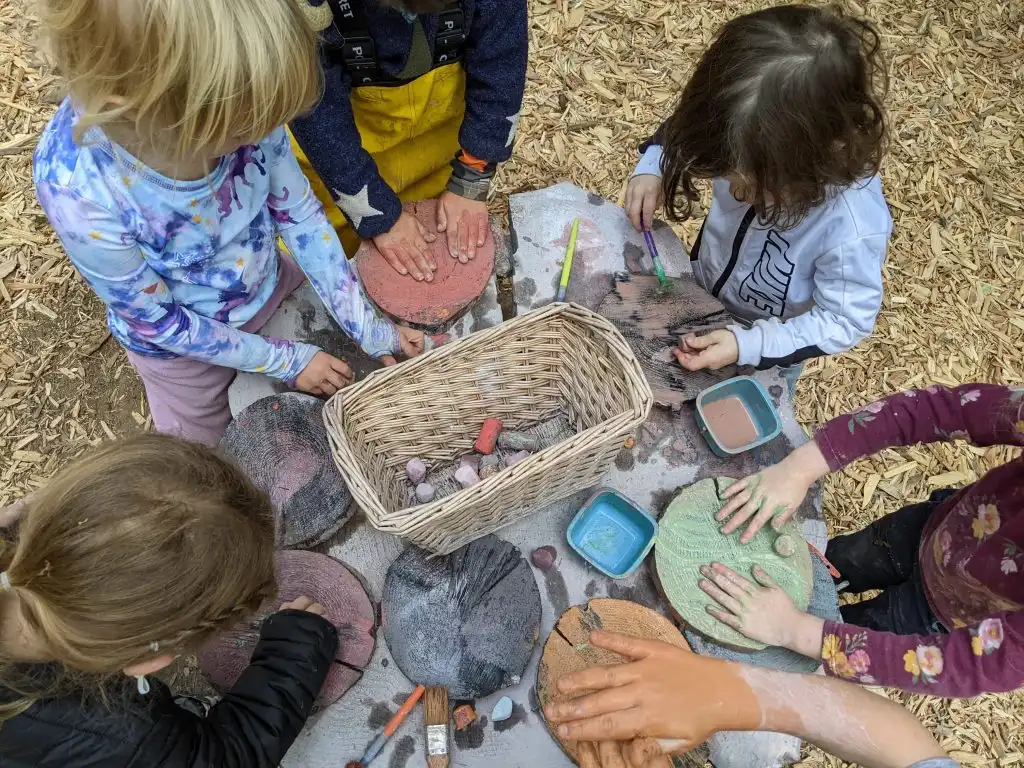
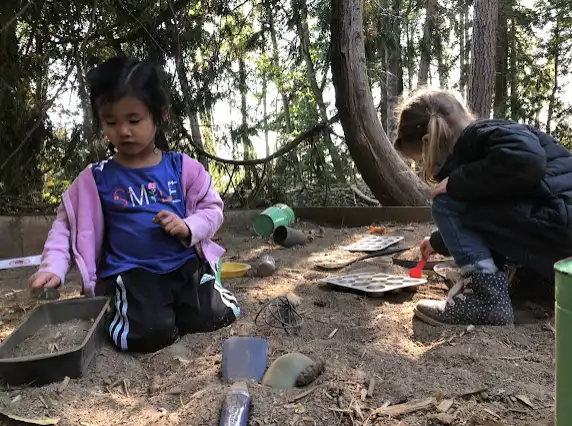
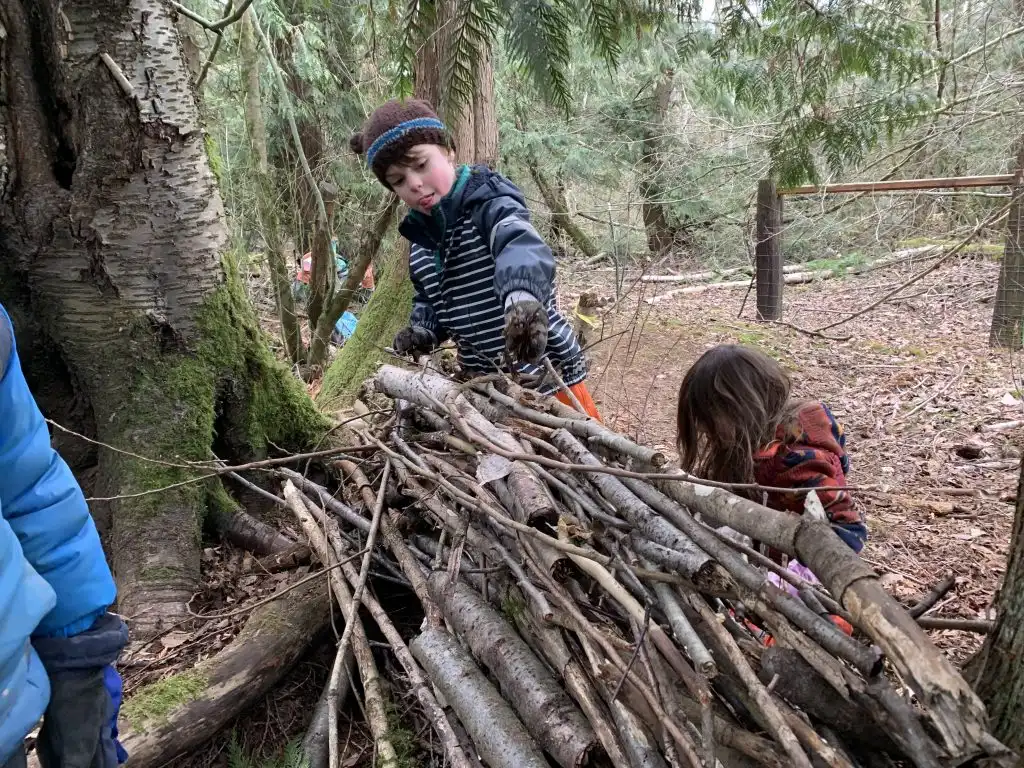
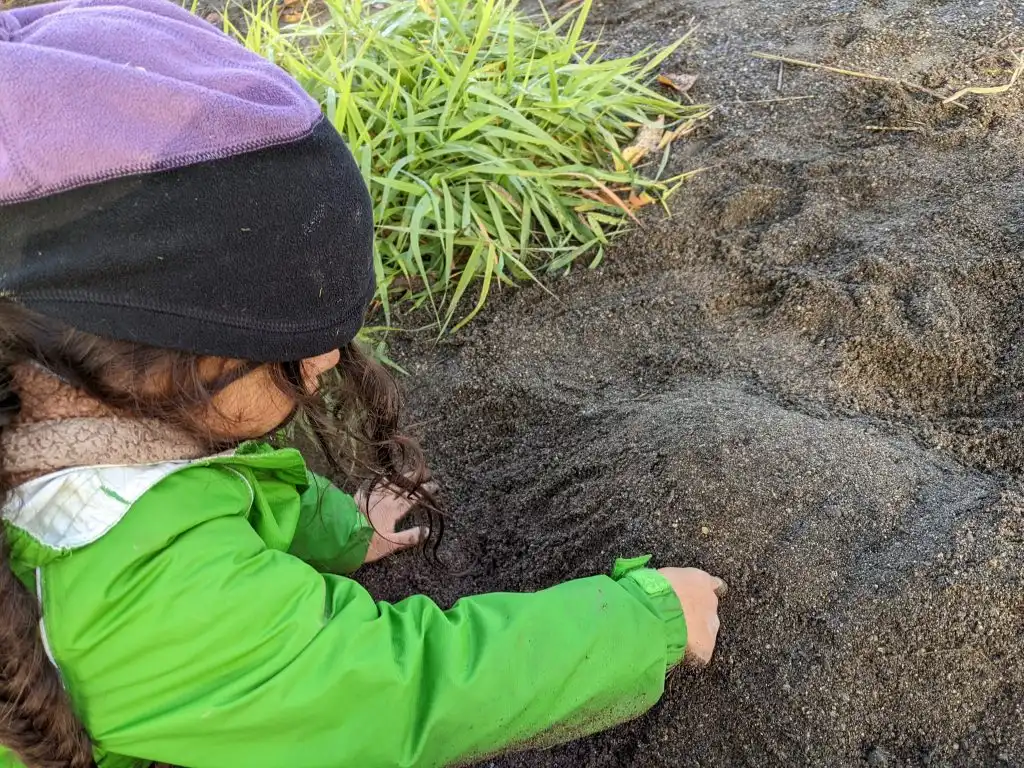
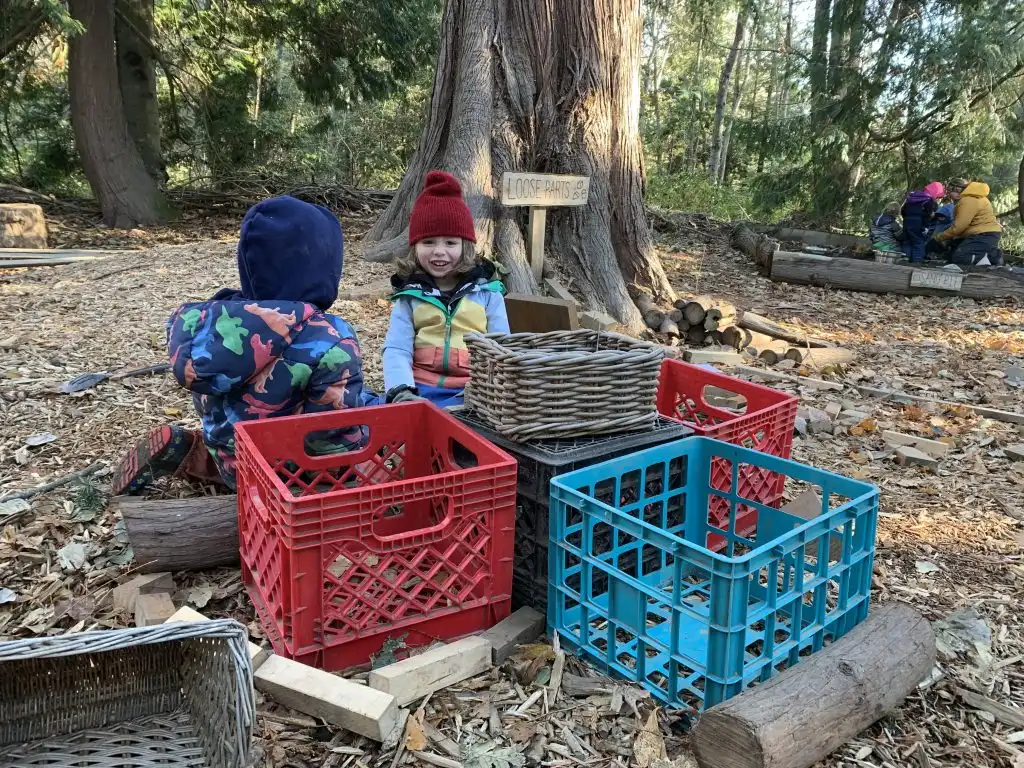
Through building relationships, intentional observation, and class discussions, we learn about and alongside our students. As teachers, we thoughtfully facilitate opportunities for them to explore emerging interests, work together, grow their unique gifts, develop new skills, and cultivate a love of learning. Through this approach, teachers will honor each child’s unique learning process while simultaneously fostering joy, curiosity, and a sense of community among students.
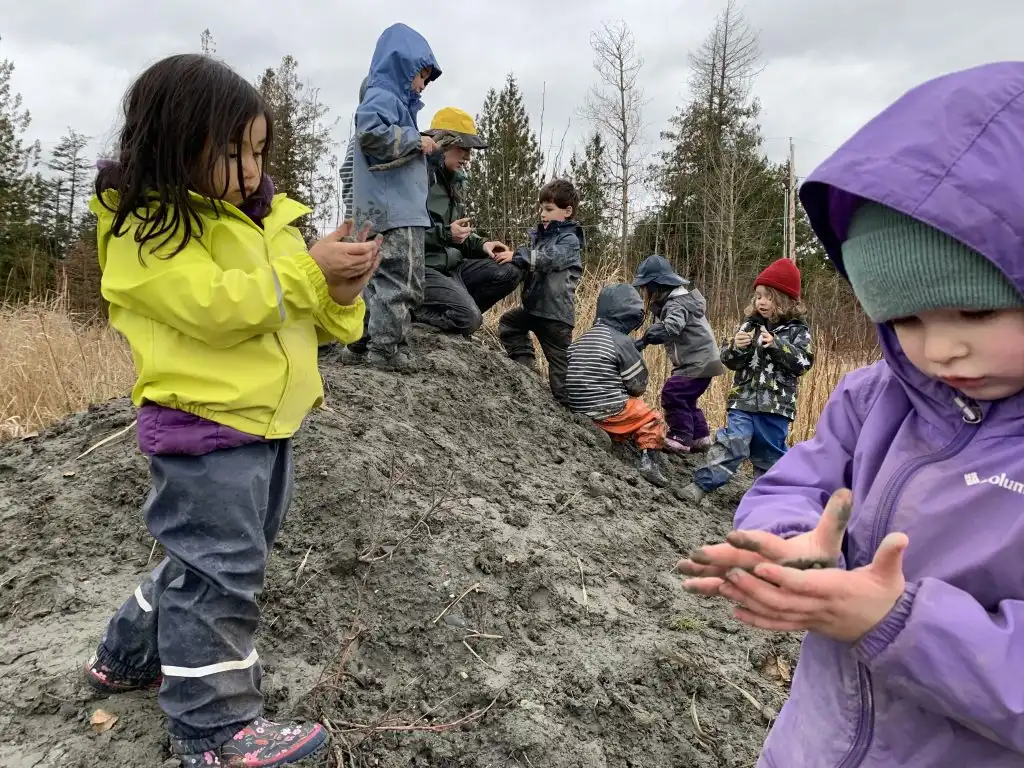
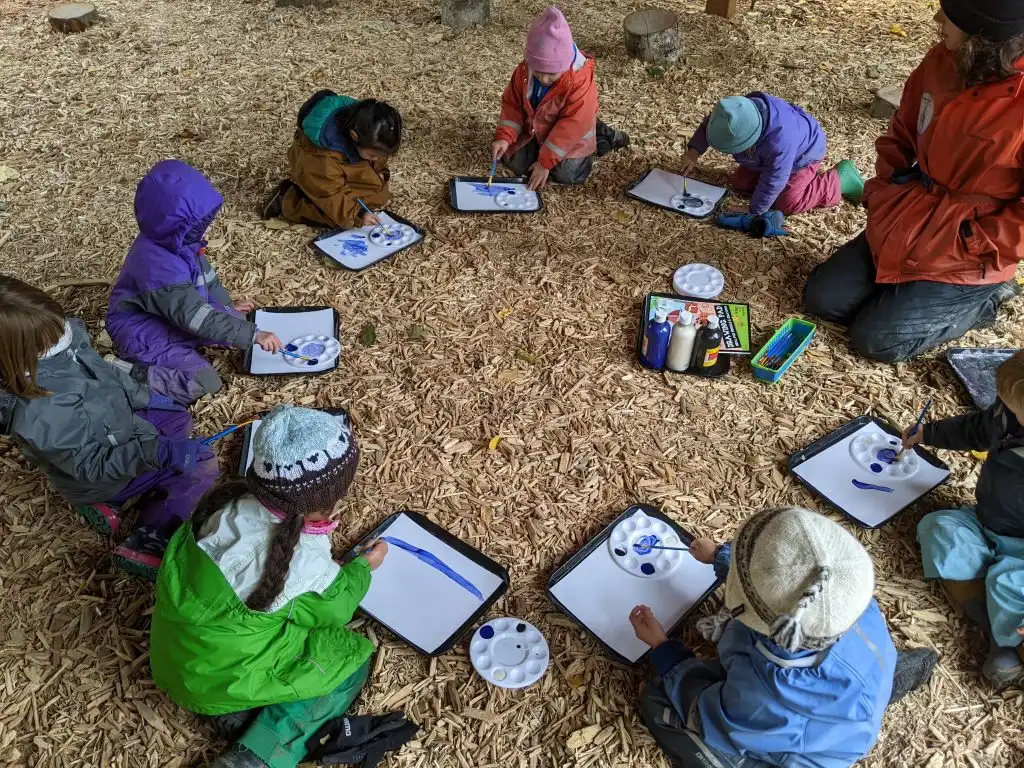
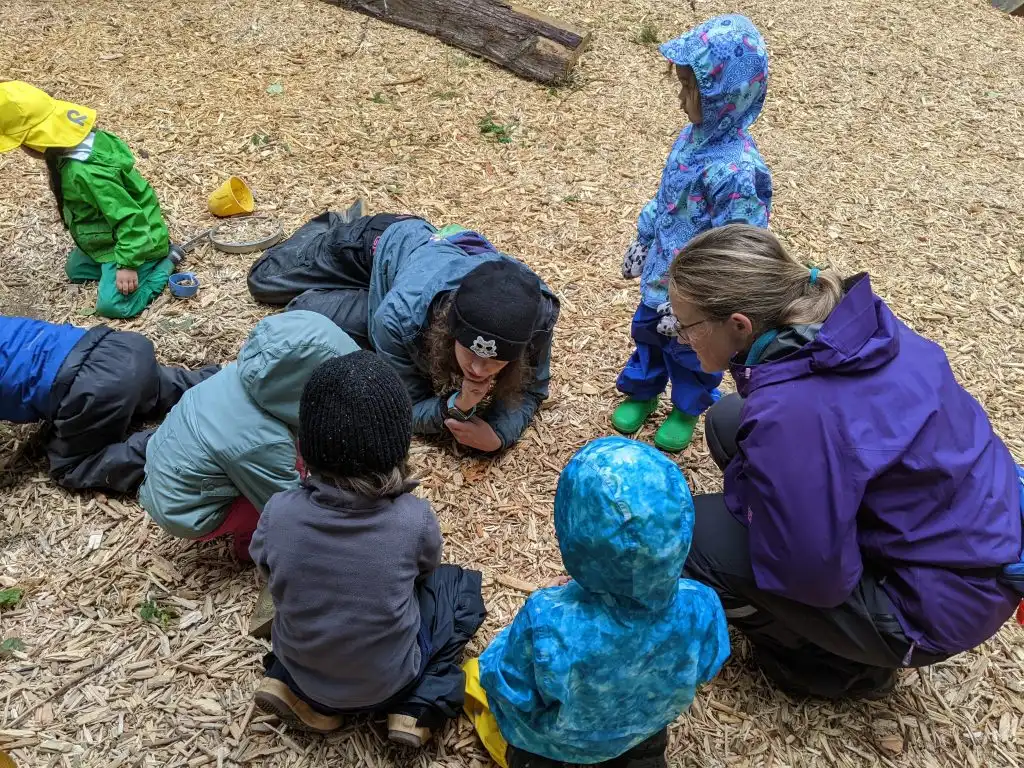
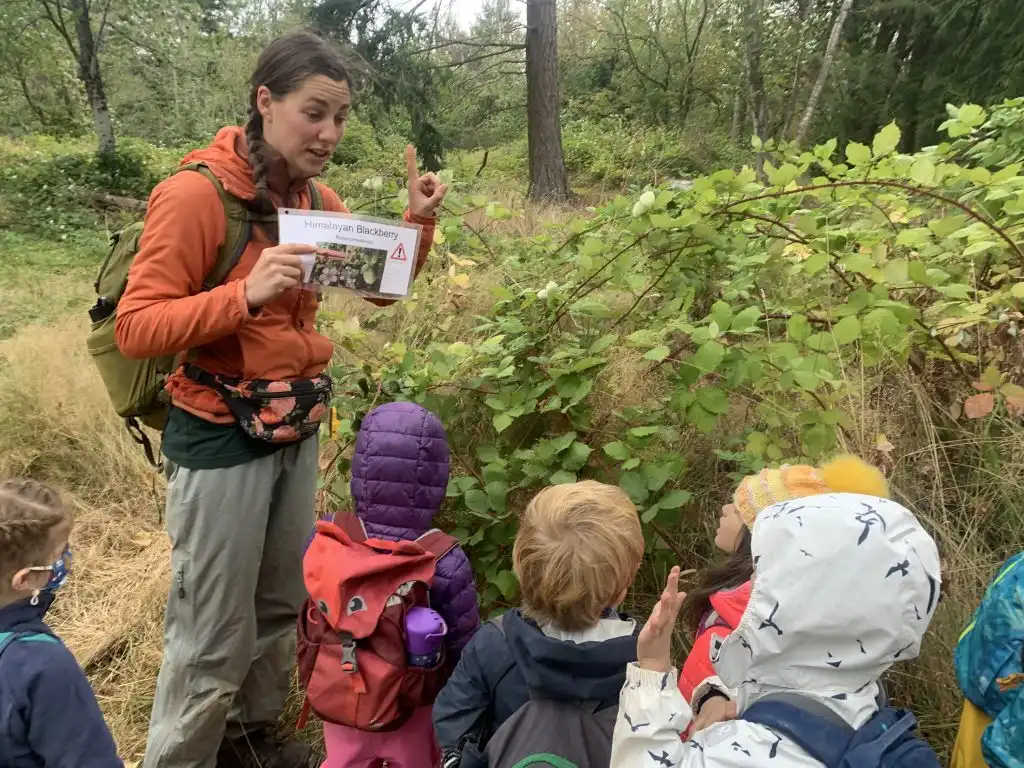
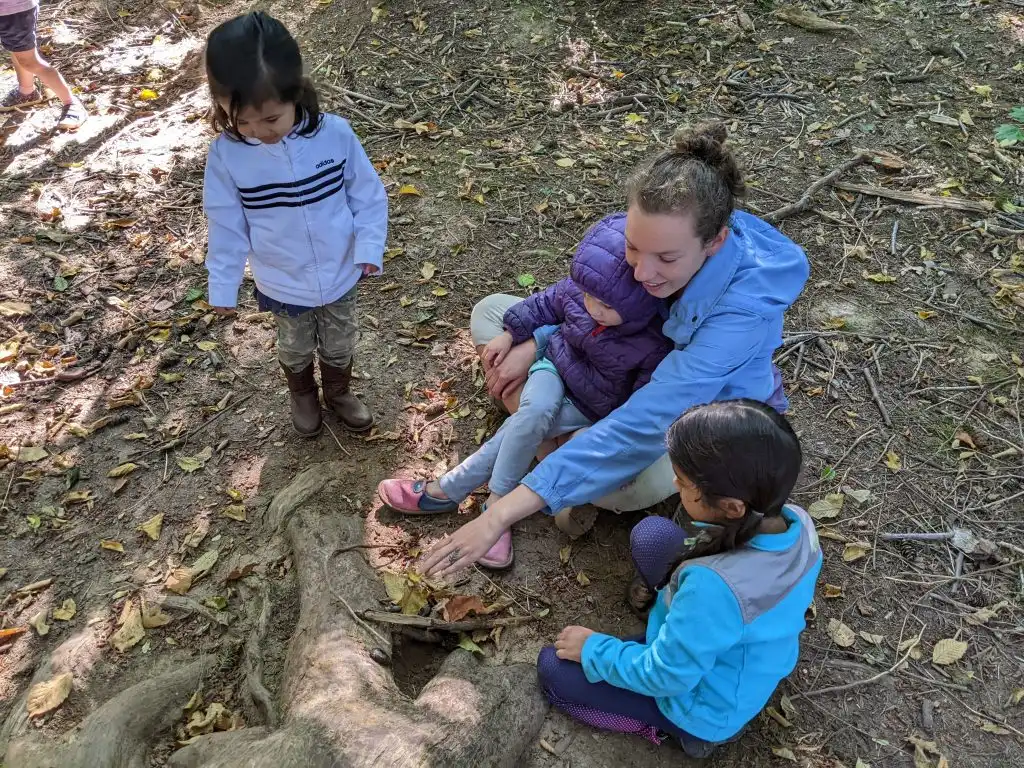
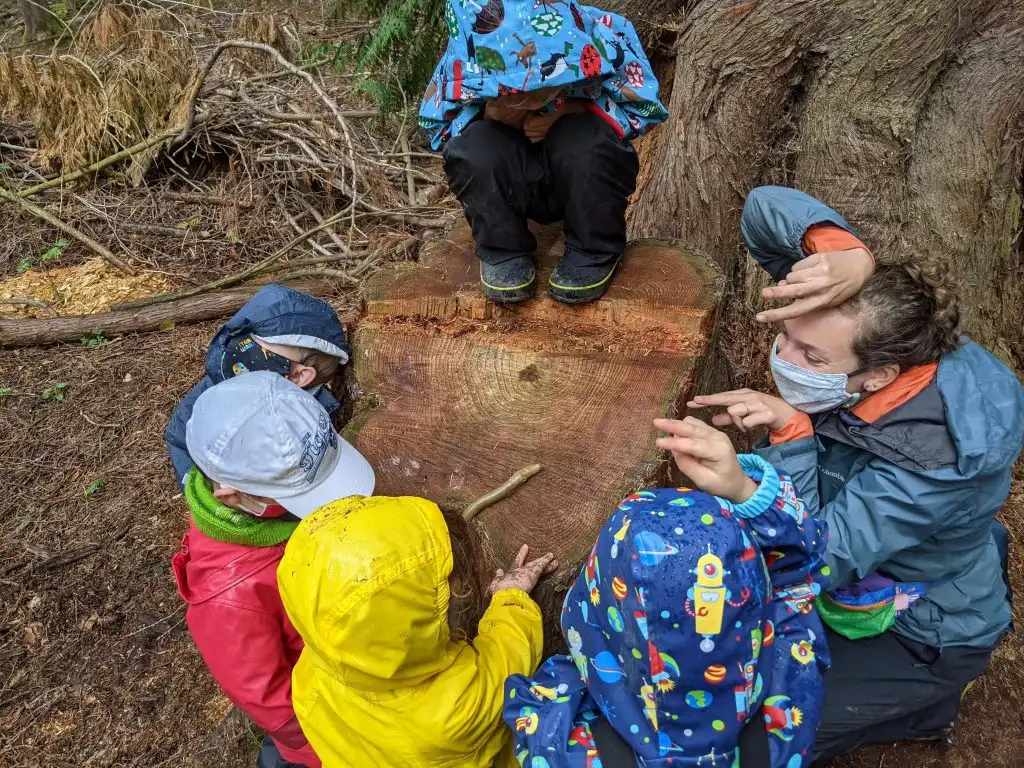
Holistic and Community-based Teaching
Lichen Early Learning believes in a holistic approach to early childhood education and our understanding of child development. We feel that relationships are at the heart of this approach, such as those between students, students and teachers, as well as teachers and family members.
As educators, it is important to understand the interconnectedness of social-emotional, cognitive, and physical development. In order to truly support children, educators must consider how these areas intersect at any given moment. For 3-5 year olds, this is a huge time for social growth. For many students, this is their first experience in a school setting surrounded by peers. As a result, we typically view social-emotional development as paramount in our work as students learn to identify and regulate their emotions.
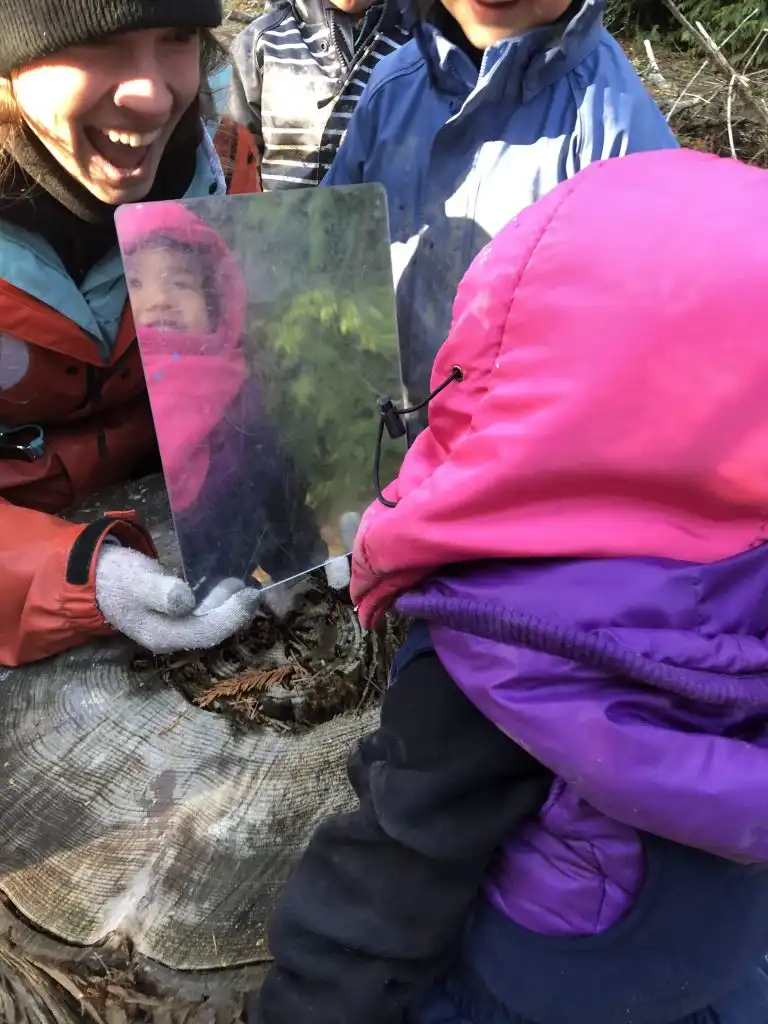
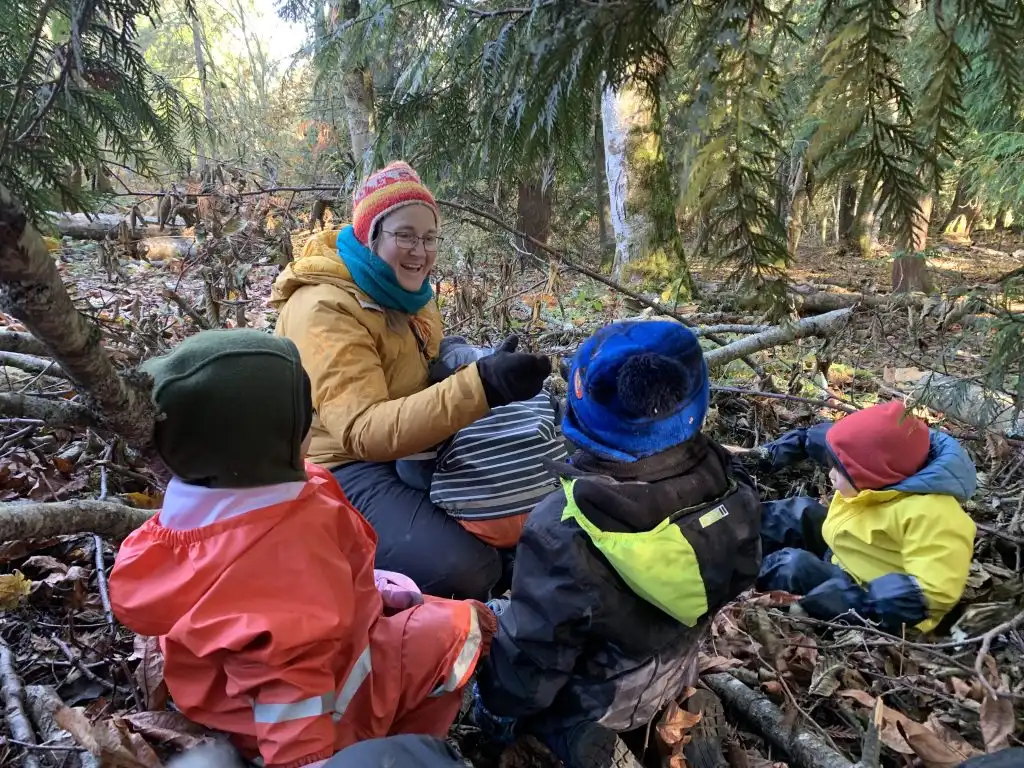
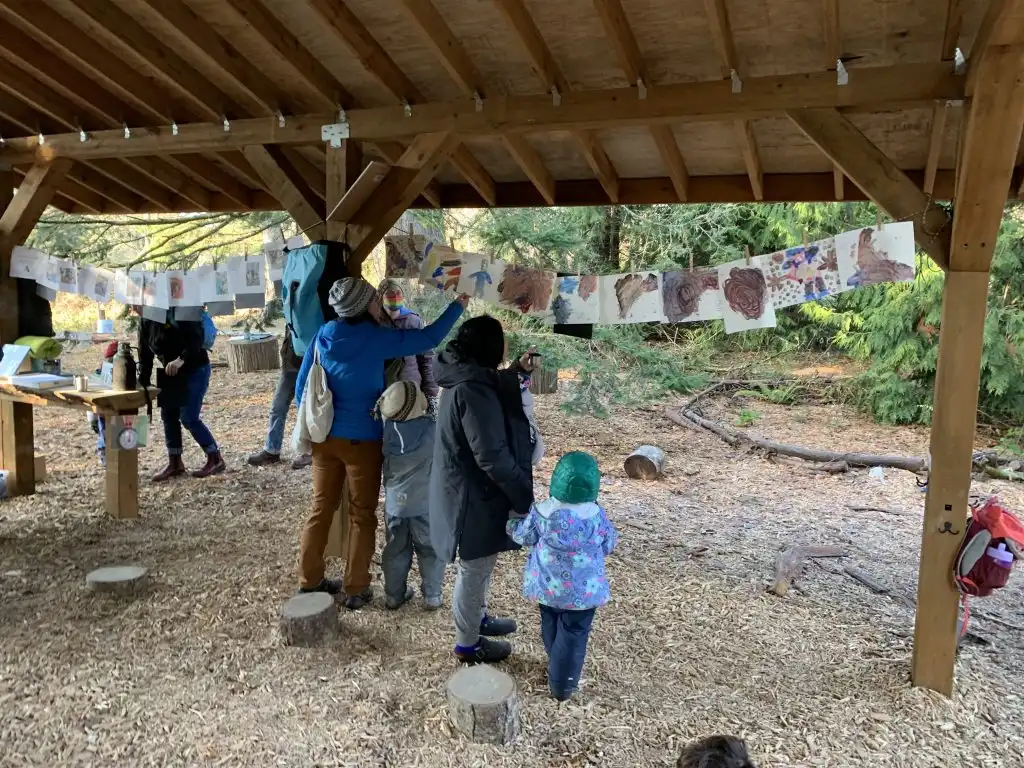
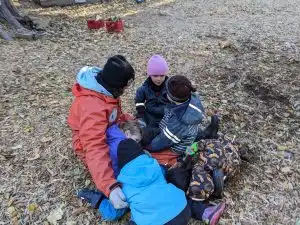
Teachers will model safe outlets to express emotions, emotional regulation skills during times of challenge, how to cooperatively work with others, and so much more. We understand that these social emotional skills do not develop in isolation, but rather alongside cognitive and physical development. Children will work through a variety of challenges such as putting on gloves, patiently waiting to be called on during circle time, and negotiating the agreements for games with fellow classmates. This will be a continuous process for each child and teachers will be there to support their continued growth along the way.
For us, a big part of a holistic approach is an emphasis on the importance of relationship building. In order to fully understand and support each individual child in our care, we need to build the community of our classroom. We will cultivate this by developing meaningful relationships and building trust with students and families, and creating an environment in which they can develop meaningful relationships with one another. Parents and caregivers are their children’s first teachers. They know them best. As educators, in order to support children in a holistic way, it is especially important for us to develop open communication with families so that we can collaboratively work together to best support them and their children.
Culturally Relevant Teaching Practices with an Anti-racist and Anti-bias Framework
Closely tied to a holistic approach and building strong relationships is the need for culturally relevant teaching practices with an anti-racist and anti-bias framework. We aim to create an inclusive and welcoming space where students and families feel that their traditions and values are seen, represented, and valued in our classroom community.
At this age, children have already begun developing biases. In developmentally appropriate ways, it is important for us as educators to challenge narratives that are harmful and oppressive. If we remain neutral or fail to act, we will perpetuate the biases and white supremacist culture that dominates our larger society. We will start to disrupt this process by presenting counter narratives that provide more inclusive and compassionate perspectives of the world, and prompting students to think critically about history, issues of fairness, and the importance of diversity.
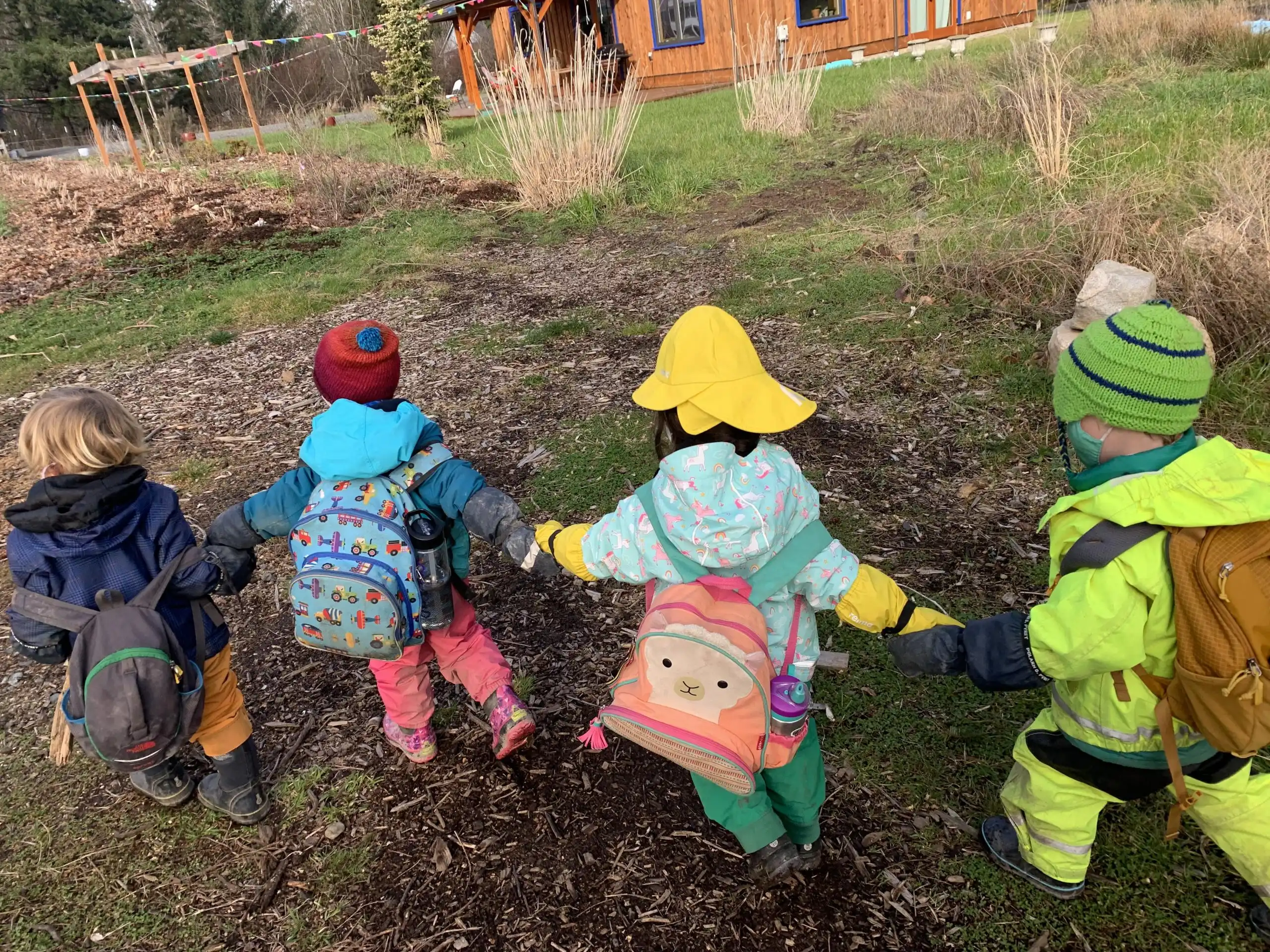
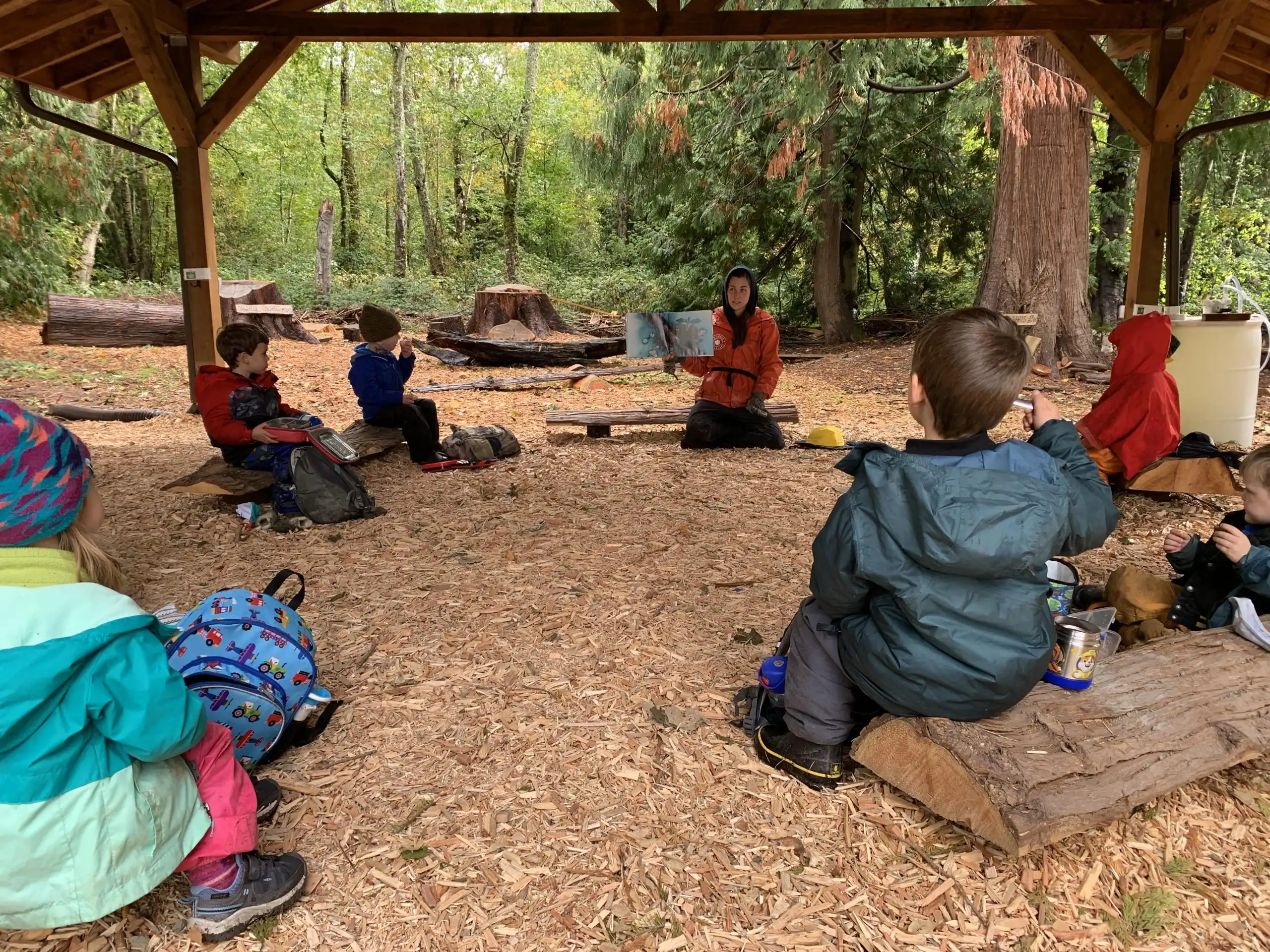
It is equally important for Lichen Early Learning members to engage in this work as individuals. We will critically reflect on our own biases, privileges, and cultural values, and how they show up in our teaching and business. This is a constant process of learning and unlearning and we must remain open to feedback from families, business partners, and the larger community as we are only at the beginning of this important work.
At Lichen Early Learning, this work can be tangibly seen through exploring and celebrating ideas around self-love, community, and diversity; and welcoming families and home cultures into the classroom. In tandem with these explorations, the natural world provides a dynamic window and mirror into the beautiful ways that diversity makes communities stronger. This work also shows up as we discuss ideas of fairness and how to treat others, learn about the indigenous people of this land, and read children’s books about people of various backgrounds, race, ability, gender expression, etc. Essentially, through this work, we want our students to be exposed to, and to start to embrace, the many different ways of being in the world. We want them to feel that they are safe in this space, seen, valued, and an integral part of the community.
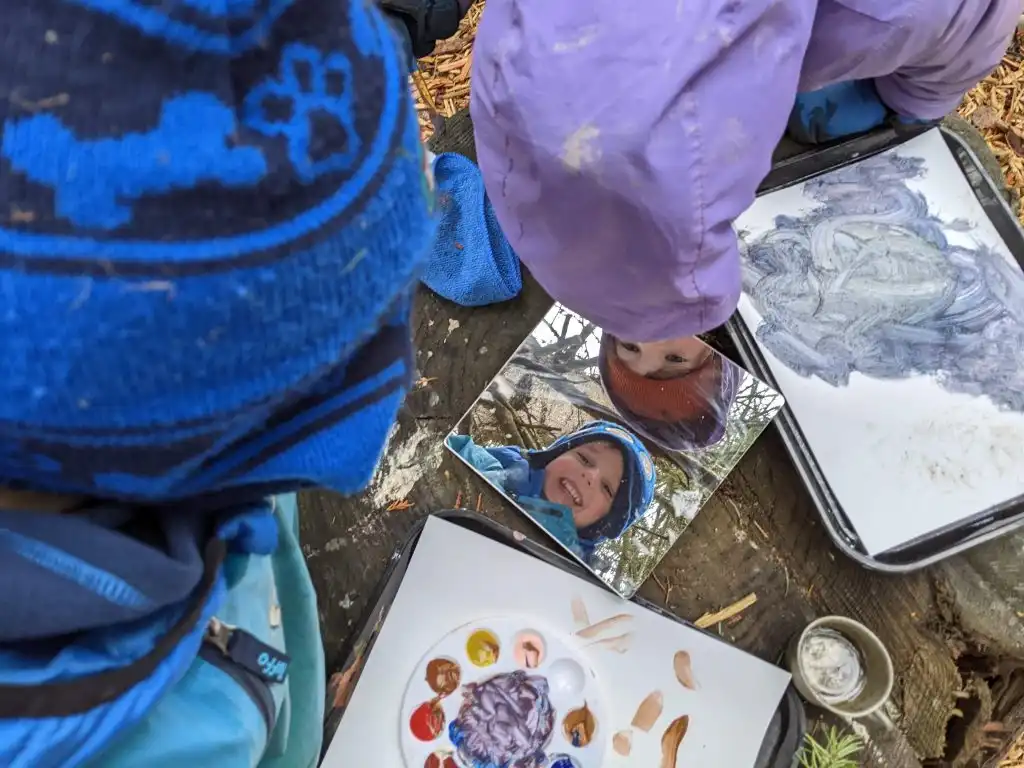
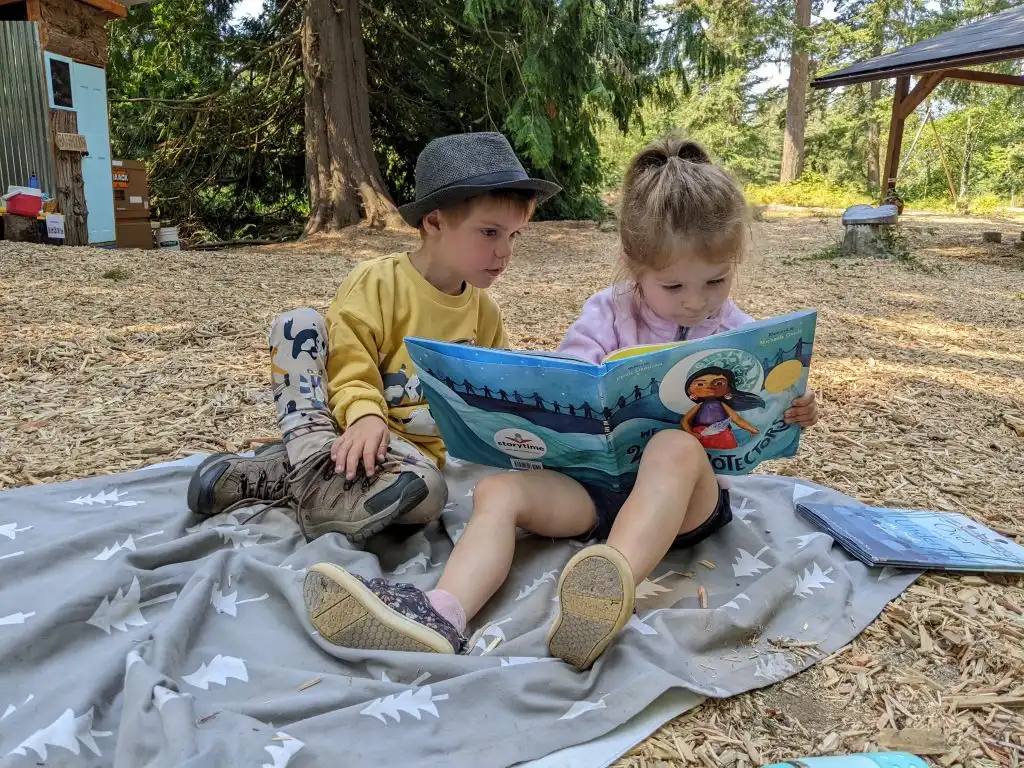
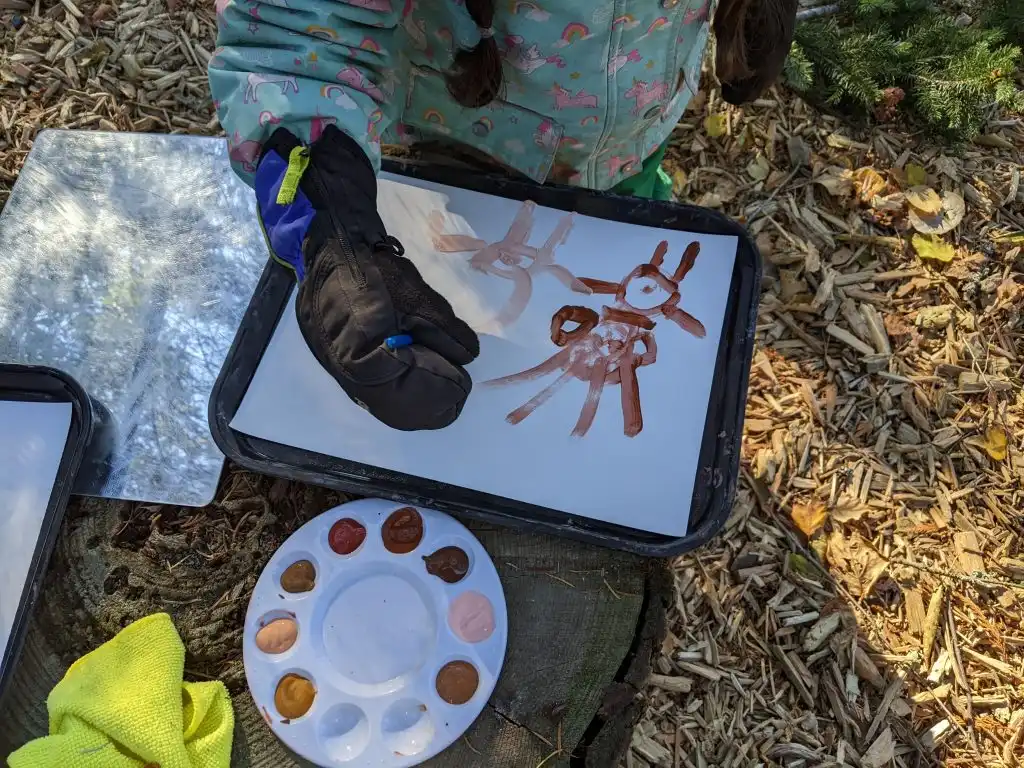
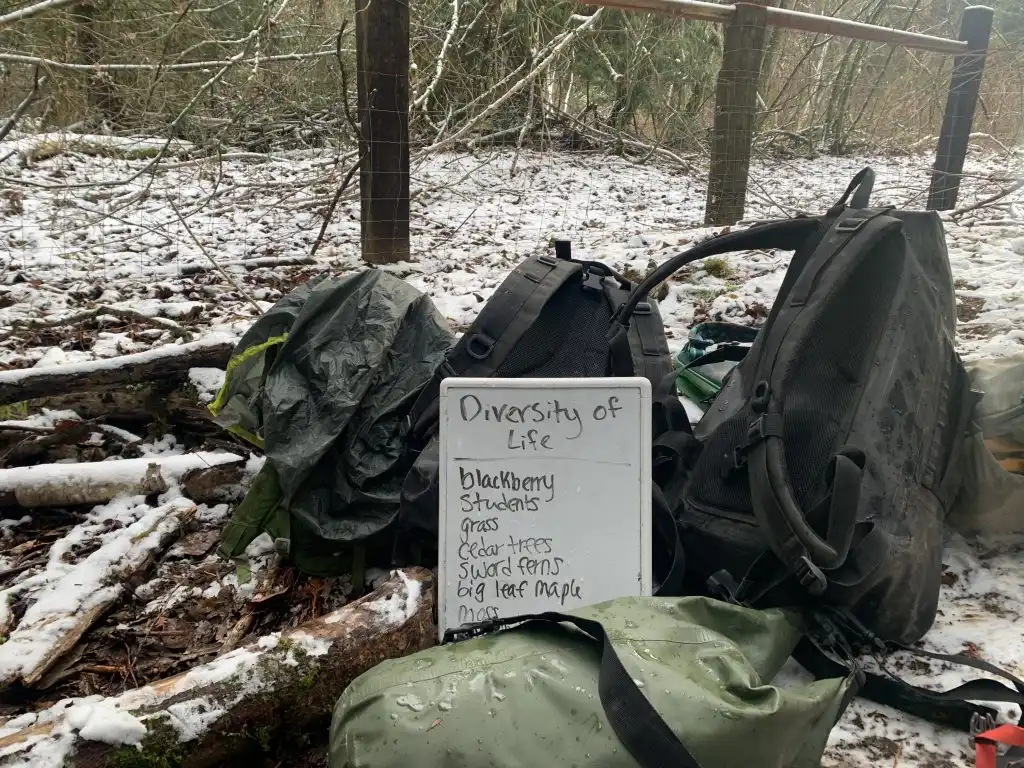
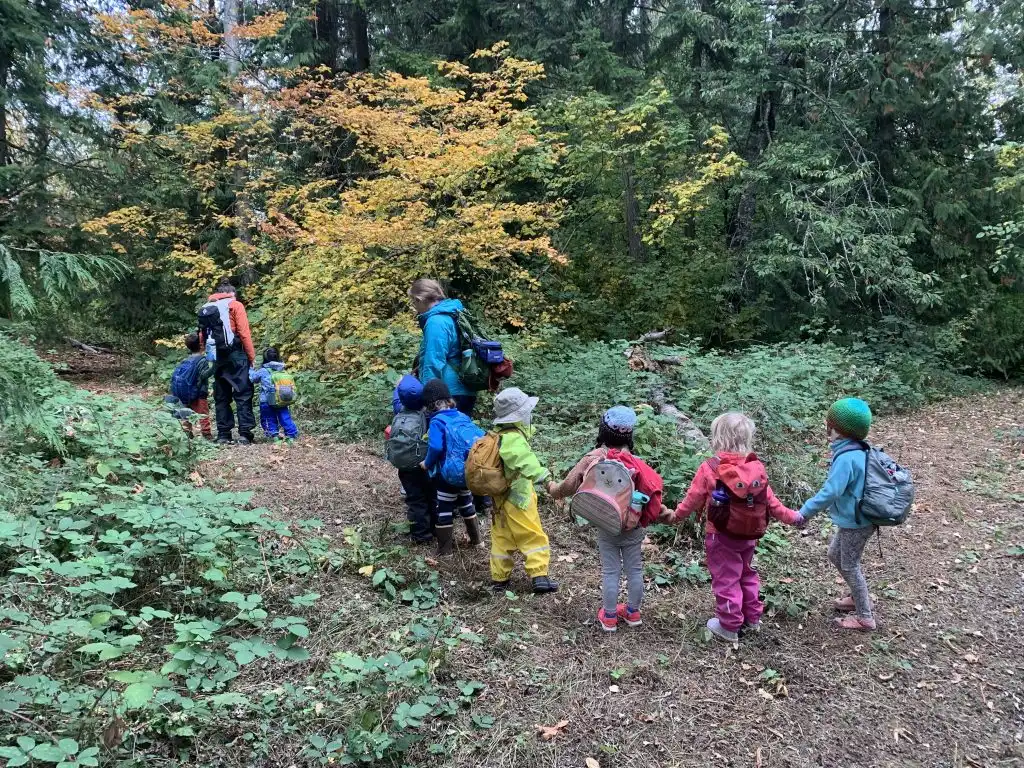
Embracing Nature-based Learning Opportunities
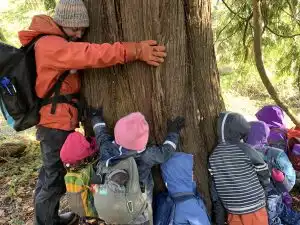
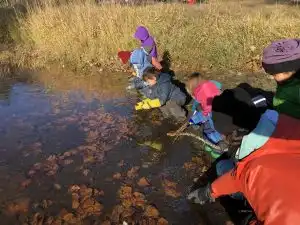
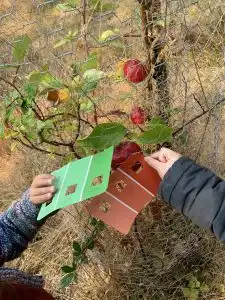
Lichen Early Learning is a 100% outdoor program. We are excited about all of the unique opportunities for holistic and healthy child development that this dynamic, sensory-rich, and ever-changing learning environment has to offer. Being outside provides freedom of expression unparalleled in indoor learning environments. All day children can run, yell, leap, and endlessly explore and discover new things. It provides so much fodder for curiosity and wonder, lending itself to inquiry-based learning approaches in which children get to pursue their questions and interests as they naturally arise. The outdoor environment also provides innumerable opportunities for loose parts play in the natural world. Imaginations and problem solving skills soar as children create and cooperatively play with sticks, logs, leaves, sand, mud, water, planks, and so much more. Some of the most magical moments during outdoor play occur through supported risk taking such as, balancing on logs, climbing trees, building with large sticks and planks, or using tools. Teachers support students by helping them develop their own risk assessment and management skills, thereby encouraging critical-thinking and self-efficacy.
We are also excited about the unique learning opportunities the farm environment has to offer! Students will have first hand experiences with food systems and the life cycles of living things through daily farm explorations and participating in their own gardening ventures.
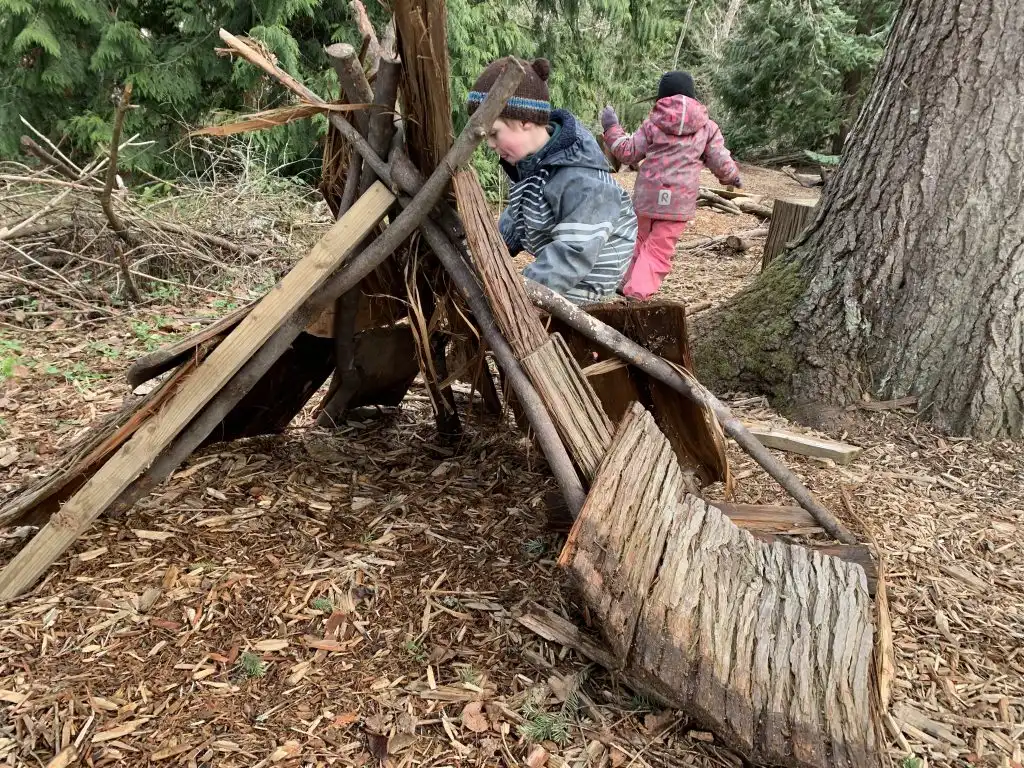
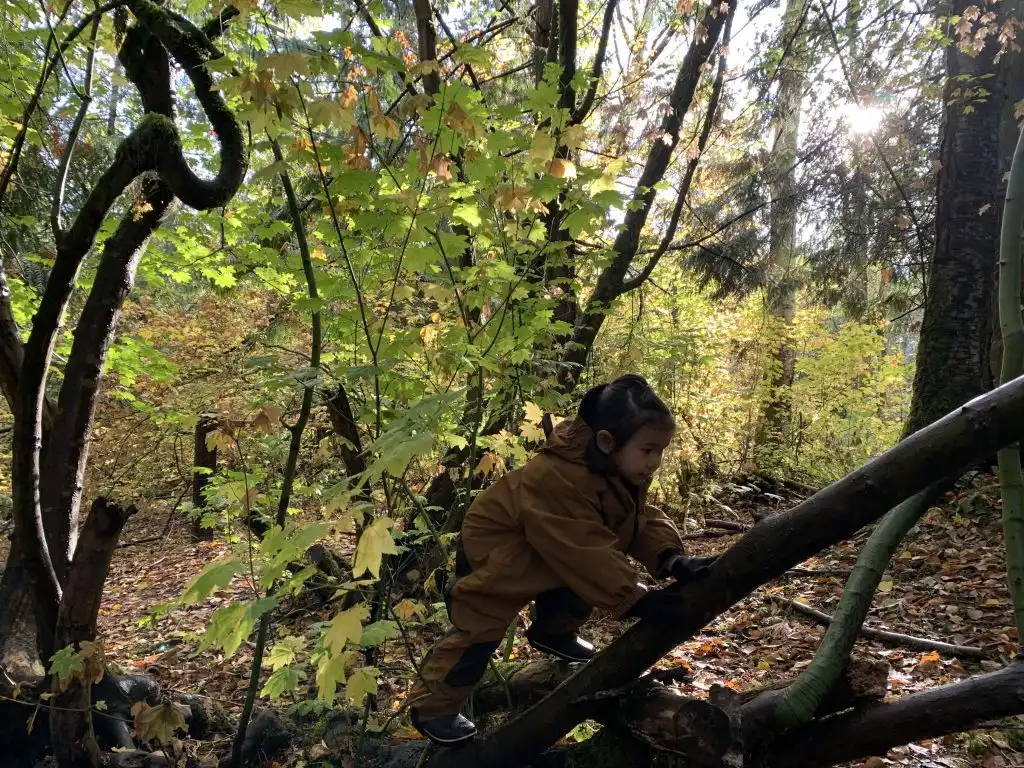
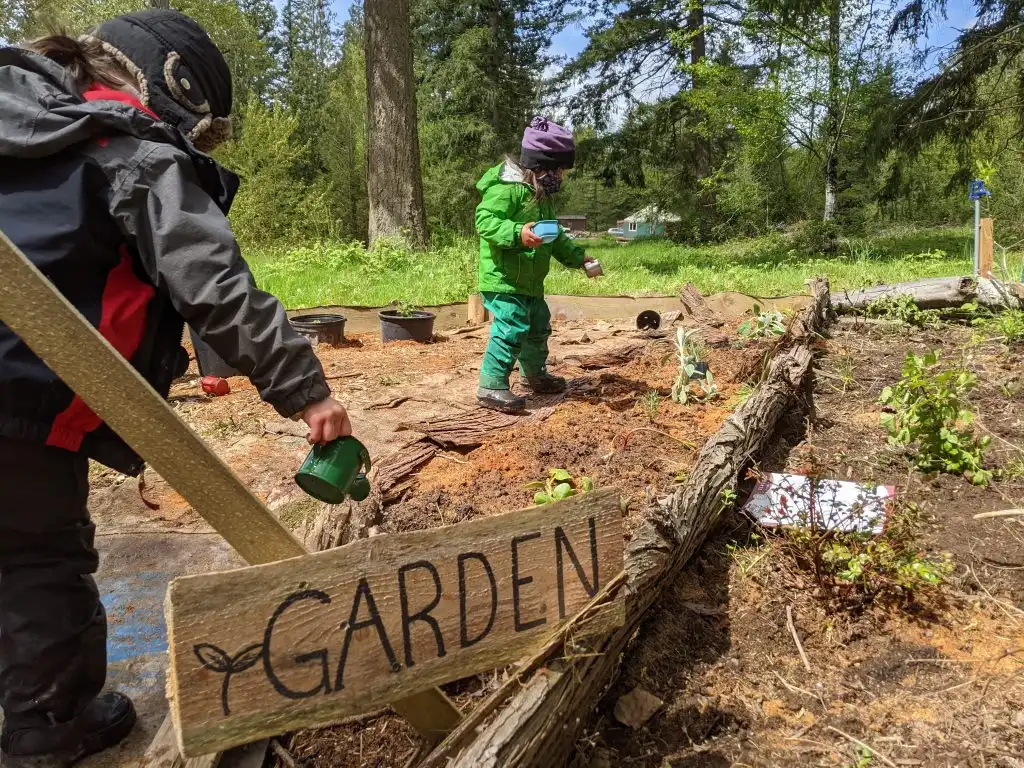
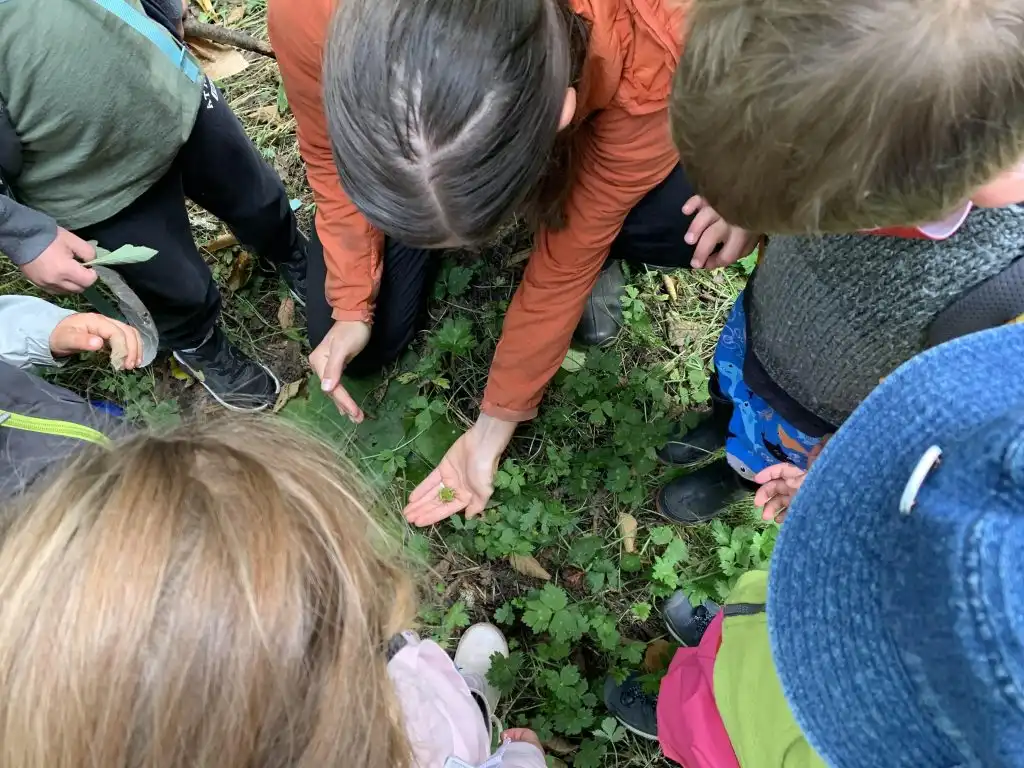
Viewing Teachers as Learners
Connected to all of these values is our view of teachers as learners. As educators, we believe it is vital to continue growing and reflecting on our teaching practices and learning constantly. Part of the way that we demonstrate this value of learning is by not portraying teachers as an all-knowing didactic source of knowledge and rules, but rather to learn alongside the students and model for them that learning is a lifelong (and fun!) journey filled with wonder and curiosity. We believe that the natural world, our community members, and every student and family has something to teach us, and that it is so important to honor learning from each other.
